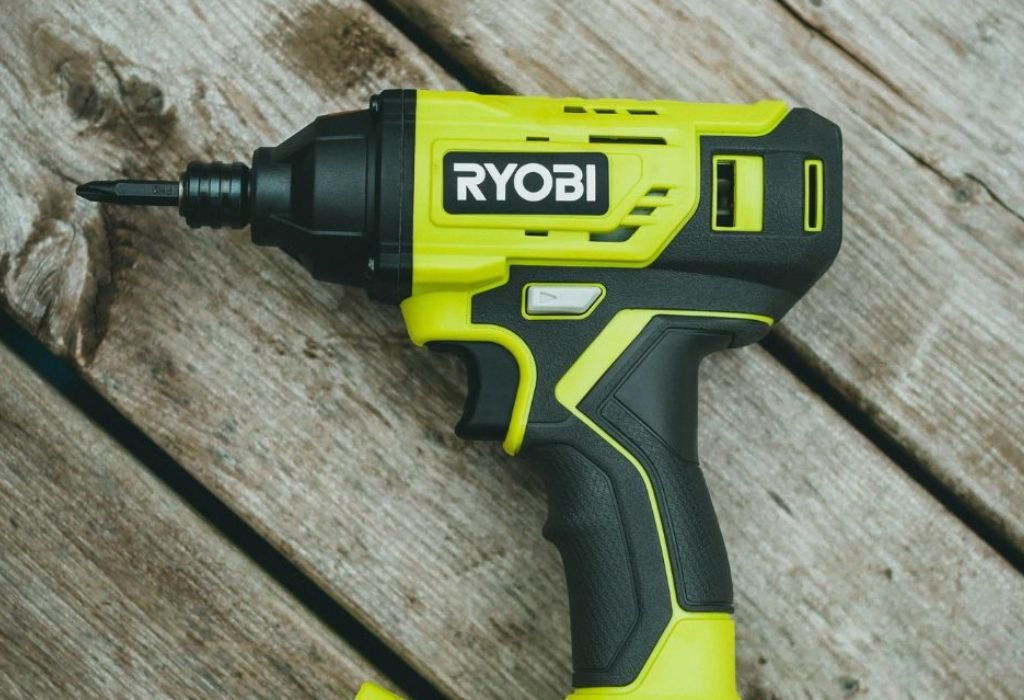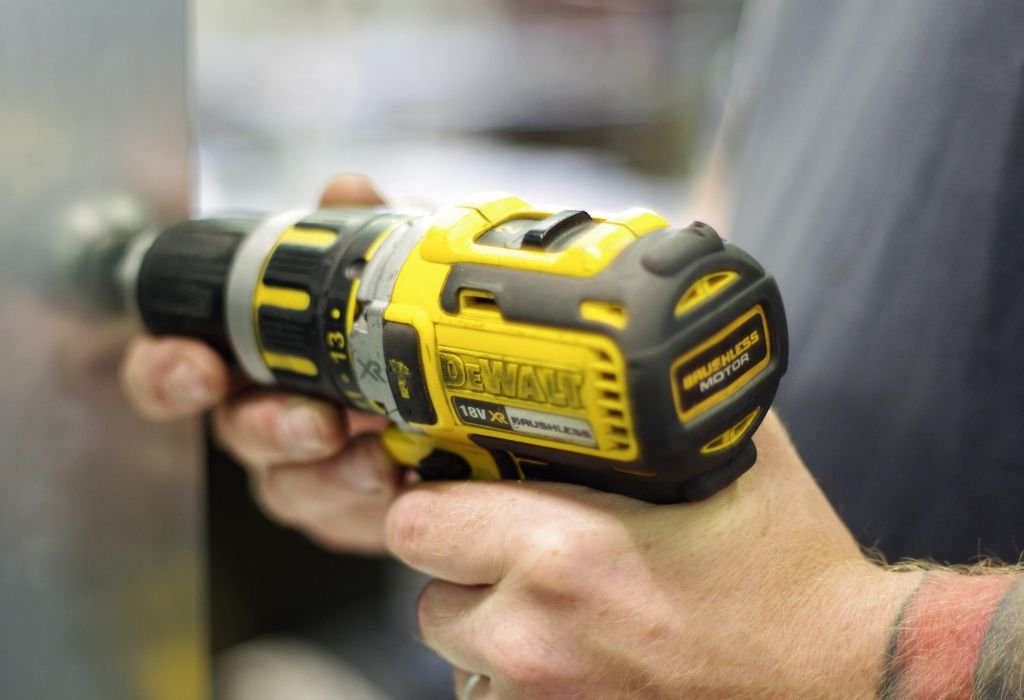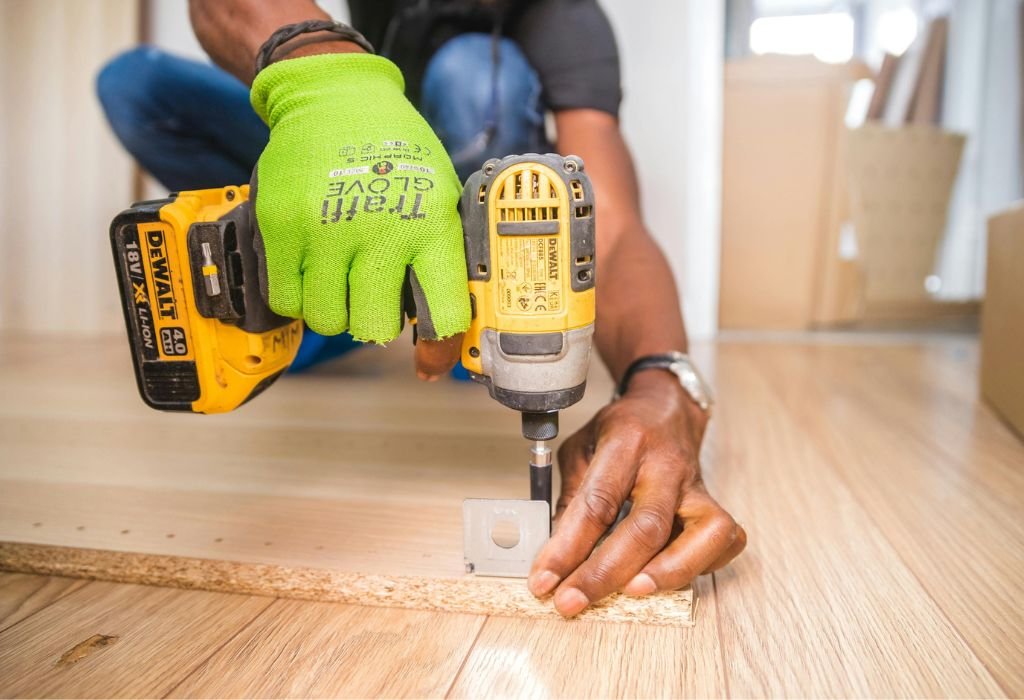Cordless drills have become a must-have tool for homeowners, DIYers, and professionals alike.
Ryobi is one of the most talked-about brands when it comes to affordable yet reliable power tools.
But many people wonder: Are Ryobi cordless drills actually good enough for serious projects?
The power tool market is growing rapidly, with cordless models taking the lead thanks to improved battery technology.
Ryobi has positioned itself as a budget-friendly alternative to premium brands like DeWalt and Milwaukee.
However, affordability often raises concerns about power, durability, and long-term performance.
This article provides a detailed, unbiased review of Ryobi cordless drills, covering features, real-world performance, pros, cons, and comparisons with other brands.
By the end, you’ll know whether Ryobi cordless drills are the right choice for your needs.
Read More: how to use a cordless drill
Ryobi Brand Overview
Ryobi is a Japanese brand known for producing affordable power tools and outdoor equipment since 1943.
The company has become a favorite among DIYers and homeowners who want reliable tools without paying premium prices.
Their cordless drill line is part of the Ryobi ONE+ ecosystem, featuring over 200 compatible tools.
This system allows users to swap batteries across multiple devices, saving both time and money.
Ryobi drills often combine reasonable performance with user-friendly features and budget-friendly pricing.
While not always considered top-tier for heavy industry use, they have a strong reputation in the consumer market.
Key Features of Ryobi Cordless Drills

Ryobi cordless drills offer a mix of essential and advanced features suitable for everyday tasks.
Most models feature variable speed triggers and adjustable torque settings for different applications.
Battery compatibility across the ONE+ system ensures flexibility with existing Ryobi tools.
Ergonomic designs, soft grips, and lightweight builds improve comfort during extended use.
Some models come with LED work lights, magnetic bit holders, and keyless chucks for added convenience.
Higher-end Ryobi drills even include brushless motors for better efficiency and longer lifespan.
Performance on Real Projects
Ryobi drills perform well on typical home projects like assembling furniture, drilling wood, and light masonry work.
They can handle tasks like driving screws into hardwood or drilling small holes into metal surfaces.
While powerful enough for moderate-duty jobs, they may struggle with continuous heavy-duty applications.
Battery runtime is generally sufficient for most DIY projects without frequent recharging.
Variable speed controls allow precise drilling, reducing the risk of overdriving screws.
Performance levels depend on the specific model, with brushless variants offering better torque and efficiency.
Build Quality and Durability
Ryobi cordless drills use sturdy plastics and reinforced components designed for home and light contractor use.
While not as rugged as premium brands, they hold up well under normal working conditions.
Accidental drops or exposure to moderate dust and moisture usually don’t affect performance.
Models with metal chucks and stronger gear systems last longer with regular maintenance.
Most users report years of reliable service when drills are used within their recommended capacity.
Heavy-duty professionals may find Ryobi durability lacking compared to Milwaukee or DeWalt tools.
Battery Life and Charging System
Ryobi’s ONE+ battery system uses lithium-ion technology for consistent power delivery.
Batteries range from 1.5Ah to 6Ah capacities, offering flexibility for runtime and weight preferences.
Higher amp-hour ratings provide longer usage times before recharging.
Fast-charging systems allow batteries to reach full capacity within 30–60 minutes depending on size.
The ability to use the same battery across over 200 Ryobi tools saves money and reduces downtime.
Dual-battery kits ensure continuous work for larger projects without interruption.
Comfort and Ease of Use

Ryobi cordless drills are designed with user comfort in mind.
Lightweight bodies reduce fatigue during overhead drilling or extended use.
Soft-grip handles improve control and minimize vibrations.
Keyless chucks allow quick bit changes without extra tools.
Simple controls make them beginner-friendly, even for people new to power tools.
LED lights on many models improve visibility in low-light working areas.
Pros of Ryobi Cordless Drills
Ryobi cordless drills offer a strong price-to-performance ratio for homeowners and hobbyists.
The ONE+ battery system adds tremendous value by supporting multiple tools with one power source.
Models cover a wide range of applications from basic drilling to advanced DIY projects.
Affordable pricing makes Ryobi tools accessible without compromising on essential features.
Their availability in big-box stores ensures easy access to replacement parts and accessories.
Brushless models provide efficiency gains similar to higher-end brands at a fraction of the cost.
Cons and Limitations
Ryobi drills are not designed for continuous heavy-duty or industrial use.
Torque and speed levels often fall short compared to DeWalt or Milwaukee equivalents.
Some entry-level models lack brushless motors, limiting power and efficiency.
Plastic components in budget models may wear faster under heavy workloads.
Warranty coverage is generally shorter than premium professional-grade tools.
Users needing maximum durability may need to invest in higher-end brands.
Comparing Ryobi to Other Brands
Ryobi vs. DeWalt: DeWalt offers higher power, longer warranties, and better durability, but at a significantly higher price.
Ryobi vs. Milwaukee: Milwaukee tools dominate in professional settings due to superior build quality and torque levels.
Ryobi vs. Makita: Makita delivers better ergonomics and brushless technology but costs more than Ryobi.
Ryobi excels in affordability, while premium brands target contractors with demanding workloads.
For homeowners and DIYers, Ryobi often provides the best balance between cost and performance.
Best Ryobi Cordless Drill Models to Consider
- Ryobi P1811 ONE+ 18V Drill/Driver Kit: Affordable starter kit with battery and charger included.
- Ryobi P252 Brushless Drill/Driver: Improved efficiency and power for intermediate users.
- Ryobi P251 Hammer Drill/Driver: Suitable for light masonry and concrete work.
- Ryobi P1813 Impact & Drill Combo Kit: Offers versatility for drilling and driving applications.
- Ryobi P215K Drill/Driver Kit: Budget-friendly option for basic home use.
Each model caters to different user needs, from casual DIY tasks to moderate professional applications.
Value for Money: Is Ryobi Worth It?

Ryobi delivers excellent value for homeowners, hobbyists, and light contractors.
Their pricing allows users to build a full tool collection without breaking the bank.
The ONE+ battery system reduces long-term costs by eliminating the need for multiple batteries.
Users who need maximum torque and industrial durability may need to consider premium brands.
For everyday use, Ryobi drills provide solid performance at a fraction of the price of professional models.
The combination of affordability and versatility makes Ryobi worth considering for most buyers.
FAQs
Are Ryobi cordless drills powerful enough for home use?
Yes, Ryobi drills handle most home and DIY tasks with ease, including woodworking and light metalwork.
Do Ryobi cordless drills last long?
With proper use and care, many Ryobi drills last for several years without major issues.
Are Ryobi batteries interchangeable across tools?
Yes, the ONE+ system allows battery swapping across 200+ Ryobi tools.
Do Ryobi drills work for concrete or masonry?
Models with hammer drill functions can handle light masonry tasks effectively.
How do Ryobi drills compare to DeWalt or Makita?
They offer less power but cost significantly less, making them ideal for budget-conscious users.
Are brushless Ryobi drills better than brushed ones?
Yes, brushless models run cooler, last longer, and deliver more efficient power usage.
What is the warranty on Ryobi cordless drills?
Most Ryobi cordless drills come with a 3-year limited warranty.
Are Ryobi drills good for professional contractors?
They’re best for light professional tasks; heavy-duty contractors often prefer premium brands.
How long do Ryobi drill batteries take to charge?
Standard chargers take 60 minutes, while rapid chargers can cut that time in half.
Are Ryobi cordless drills suitable for beginners?
Absolutely, they’re easy to use and perfect for first-time tool owners.
Conclusion
Ryobi cordless drills offer a compelling mix of affordability, functionality, and convenience.
While not designed for extreme heavy-duty tasks, they meet the needs of most homeowners and DIY enthusiasts.
Key strengths include battery compatibility, user-friendly designs, and reasonable performance.
If you need professional-grade power and durability, you may want to look at premium brans.
But for budget-conscious buyers seeking reliable cordless drills, Ryobi remains a strong choice.

I’m John F. Nicholas, the founder, lead writer, and drill enthusiast behind 101drill.com. With years of hands-on experience in power tools and DIY projects, I created this platform to share practical knowledge, expert tips, and real-world insights to help others master the art of drilling.
